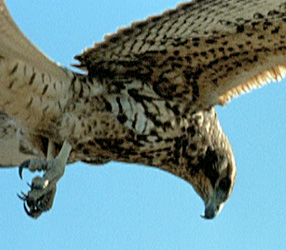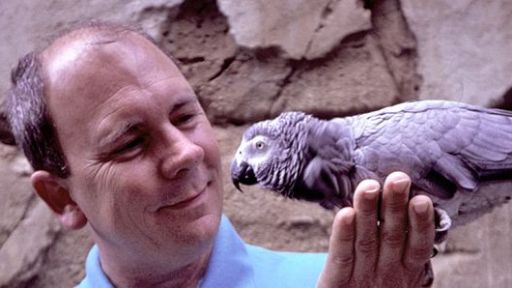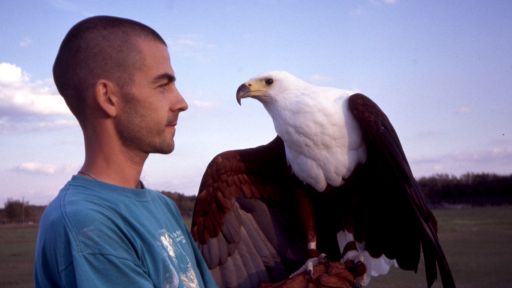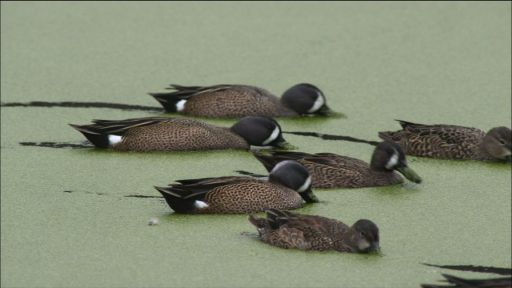NATURE’s Extraordinary Birds offers a glimpse into the world of falconry, the ancient art of training hawks, falcons, and other birds of prey to hunt. Here, falconer Steve Jones — a Wyoming resident, he is the editor of American Falconry magazine, and one of the roughly 5,000 licensed falconers in the United States — answers a few questions about his passion.
How did you become a falconer?
When I was kid, I had a neighbor who was into it. I kept pigeons as a kid, and he had pigeons, too. When I went over to see his pigeons, I found out that he was a falconer. He kept the pigeons to train and feed his falcons.
What kind of falcons do you have?
Right now, I’ve got a prairie falcon and a hybrid falcon. The hybrid is a cross between a peregrine falcon and a gyrfalcon.
Where do your birds live?
I’ve got several places. There is a perch system in the living room for when they are younger and getting used to people. I’ve also got a place in the yard where they can take a bath and get some fresh air. And I’ve got a shed-like building, called a mews, where the falcons can stay at night or in bad weather.
Where do falconers get their birds?
In the middle ages, people would trap wild birds. Today, the majority of falconers get young birds that have been raised in captivity. They are usually less than 80 days old.
How much time do you spend doing falconry?
I get out almost every day during the hunting season here in Wyoming, which is from September to February. My birds hunt sharptail grouse, partridge, and ducks, sometimes sage grouse and pheasant. I’ll spend three or so hours out with them most days.
Why don’t your falcons fly away?
If they wanted to, they could fly away in a heartbeat. But I’ve trained [them] and built trust with them. They’ve learned that I am not a threat. In training, I’ve taught them that when they catch the lure, there is always food. If it’s a falcon, I’ve trained them that if they circle in the sky above me, I will flush the quarry below. And even if they are not successful in the hunt, I will have a consolation prize for them, some food. It’s a partnership that benefits them. They are content.
How do you protect your hand from their sharp talons?
I wear a glove. Any type of leather glove will work — it depends on the type of bird. For larger birds, you use a thicker glove.
Why do you falcon?
Because you get to see things you’d never get to see otherwise. The average person almost never gets to see a wild hawk or falcon hunt. I get to see it with my trained falcons every day. I get to see the predator-prey relationship like you’ve never seen it before.
Steve Jones
Editor, American Falconry Magazine
http://www.americanfalconry.com






